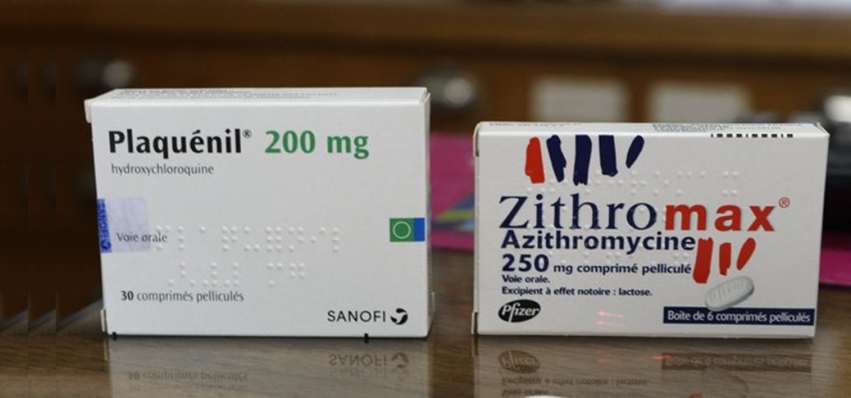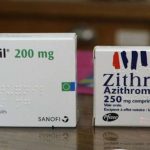The nation’s leading cardiology groups urged caution with hydroxychloroquine and azithromycin for COVID-19 patients with cardiovascular disease

With all the positive stories surrounding hydroxychloroquine and azithromycin, the nation’s leading cardiology associations urged caution in the use of the two drugs for COVID-19 in patients with cardiovascular disease, according to new guidance released by the American Heart Association, the American College of Cardiology and the Heart Rhythm Society.
“Hydroxychloroquine and azithromycin have been touted for potential prophylaxis or treatment for COVID-19 (coronavirus disease 2019) infection. Both drugs are listed as definite causes of torsade de pointes at crediblemeds.org. There are occasional case reports of hydroxychloroquine prolonging the QT interval and provoking torsade de pointes1-4 when used to treat systemic lupus erythematosus. Antimalarial prophylactic drugs, such as hydroxychloroquine, are believed to act on the entry and post-entry stages of SARS-CoV (severe acute respiratory syndrome–associated coronavirus) and SARS-CoV-2 (severe acute respiratory syndrome coronavirus 2) infection,” the American Heart Association, the American College of Cardiology, and the Heart Rhythm Society said in a joint statement April 8 in Circulation.
The guidance came amid ongoing controversies as President Trump touted hydroxychloroquine as a game changer even as medical officials said there is no sufficient data to prove its safety and effectiveness. Instead, the groups recommended recommended withholding the drugs in patients with baseline QT prolongation (e.g., QTc of at least 500 msec) or with known congenital long QT syndrome; monitoring cardiac rhythm and QT interval and withdrawing hydroxychloroquine and azithromycin if QTc exceeds 500 msec; correcting hypokalemia to levels greater than 4 mEq/L and hypomagnesemia to more than 2 mg/dL; and avoiding other QTc-prolonging agents when possible.
The groups noted that, “in patients critically ill with COVID-19 infection, frequent caregiver contact may need to be minimized, so optimal electrocardiographic interval and rhythm monitoring may not be possible.” There is also a possible compounding arrhythmic effect when hydroxychloroquine and azithromycin are used together, but that has not been studied.
There’s a known risk of torsade de pointes with chloroquine and a possible risk with the antiviral HIV combination drug lopinavir-ritonavir, two other candidates for COVID-19 treatment. Hydroxychloroquine and chloroquine, both antimalarials, might help prevent or treat infection by interfering with angiotensin-converting enzyme 2 receptors, which the COVID-19 virus uses for cell entry, the groups said.
“The urgency of COVID-19 must not diminish the scientific rigor with which we approach COVID-19 treatment. While these medications may work against COVID-19 individually or in combination, we recommend caution with these medications for patients with existing cardiovascular disease,” Robert A. Harrington, MD, AHA president and chair of the department of medicine at Stanford (Calif.) University, emphasized in a press release.




